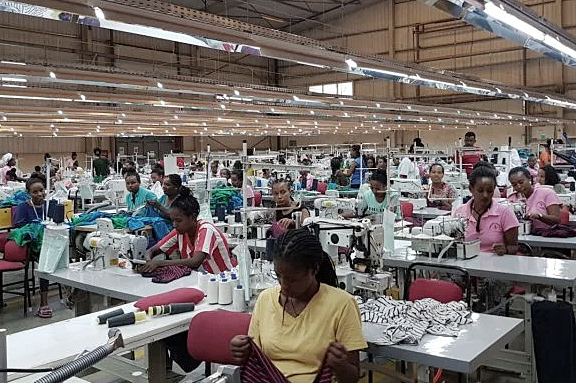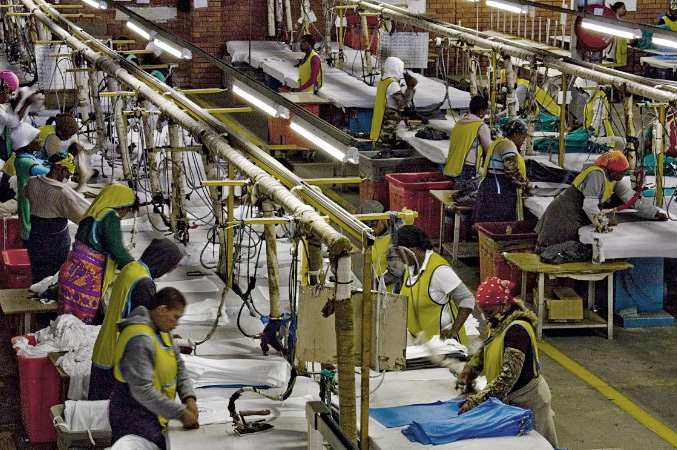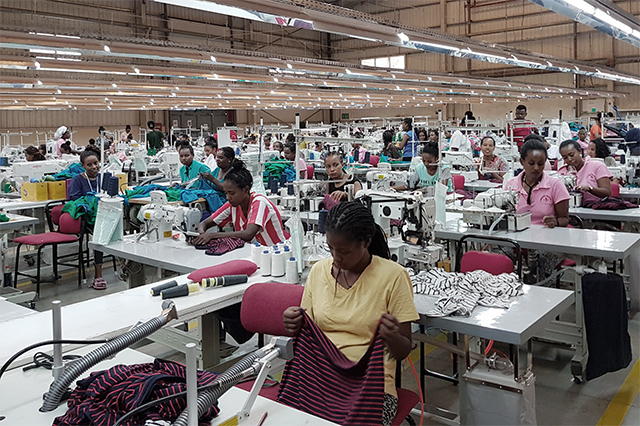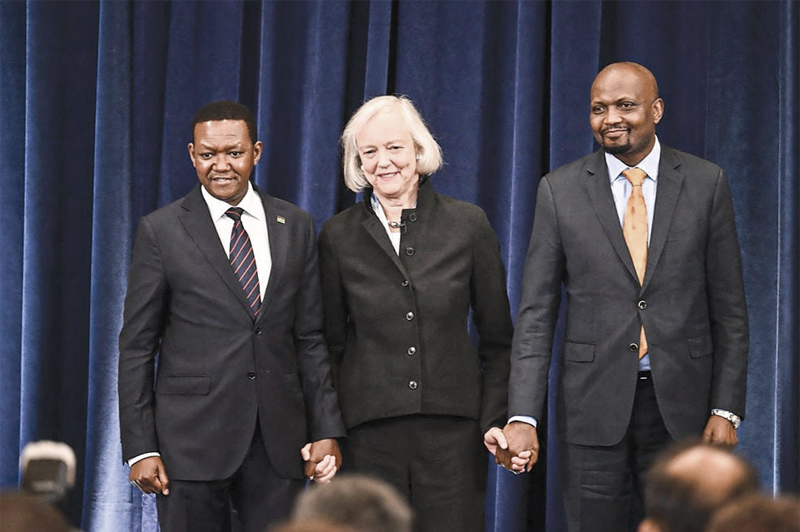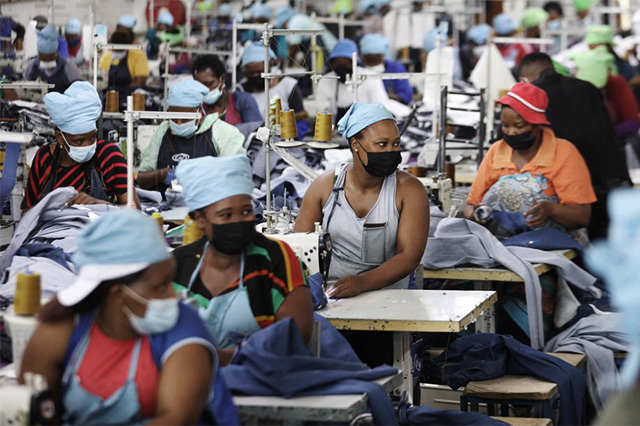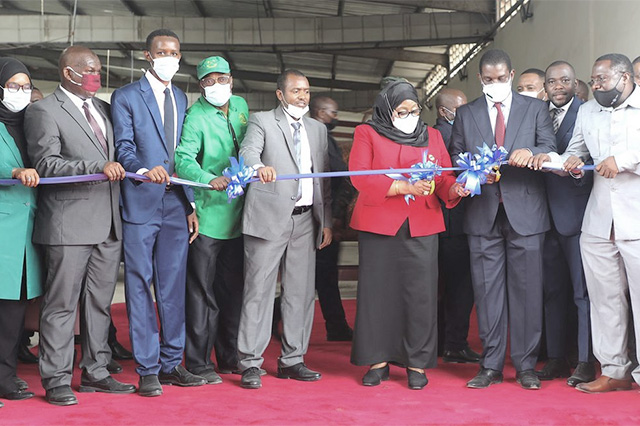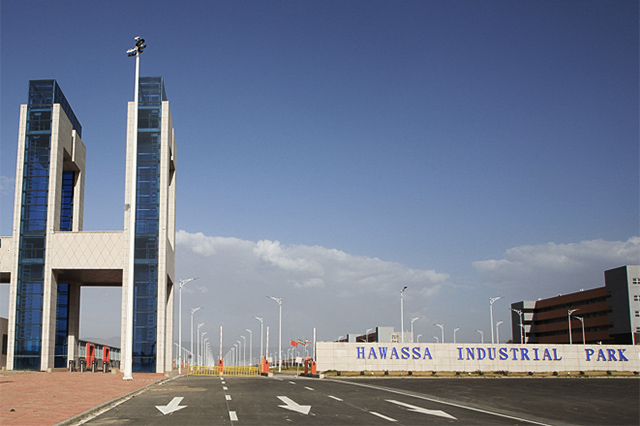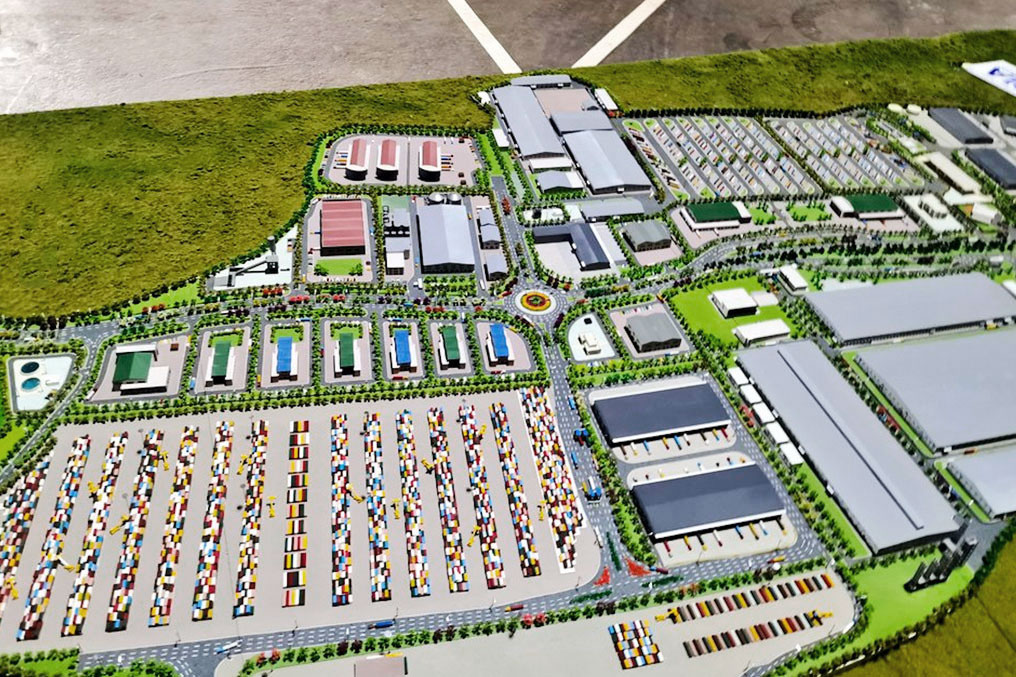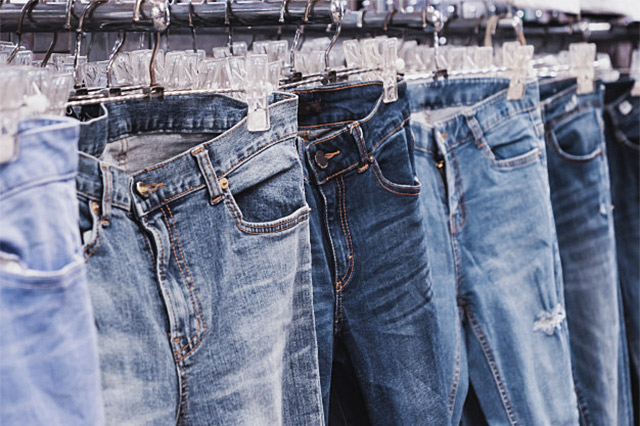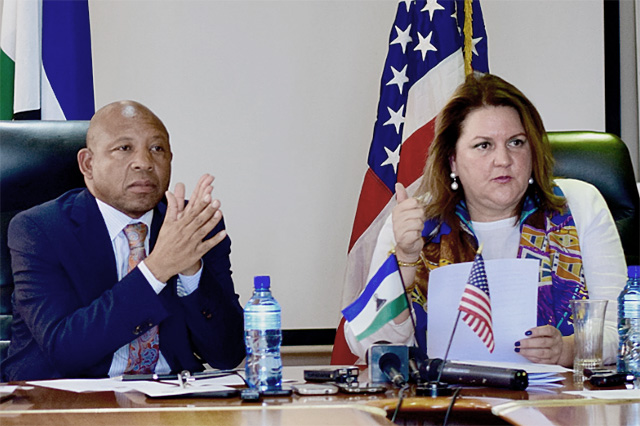Apparel sourcing: Is Africa ready for a rush?
Roughly half of all American Apparel and Footwear Association (AAFA) members source from Africa today, and following last summer’s 10-year renewal of the African Growth and Opportunity Act (AGOA), that number is likely to increase.
However, as discussed during a Sourcing at Magic seminar Wednesday titled “Africa on the Verge,” that duty-free access is temporary and the continent needs to start putting infrastructure in place now so that in 10 years, its textile and garment industry will be competitive regardless of whether AGOA is renewed or not.
“There’s a lot of pressure to ramp up an industry really fast in Africa—too fast. And we’ve seen many examples of what happens when an industry ramps up too fast in a country,” Nate Herman, AAFA vice president of international trade, pointed out, citing Bangladesh and Cambodia.
Bill McRaith, chief supply chain officer at PVH Corp., owner of the Calvin Klein and Tommy Hilfiger brands, agreed, noting that today Africa sits on the verge of a rush that could overwhelm it very quickly.
“We often use Bangladesh as an example of where it was done wrong, but within Bangladesh there are some very good factories. However, people generally talk about Bangladesh as something that’s difficult,” McRaith said, posing some thought-provoking questions to the crowd: “How do you want [Africa] to be thought of five years from now? How will people refer to Kenya or Ethiopia in five years? Will they use it as Bangladesh as an example of what’s wrong in the world? Or will they refer to it like they do Sri Lanka? It’s the decisions you make today that will determine how people will talk about you tomorrow.”
That’s why PVH has been instrumental in setting up a socially-responsible vertical facility in Hawassa, Ethiopia, that’s slated to start production next summer.
“We said we will carve out a world where we only allow good actors into the neighborhood and prevent bad actors getting into the neighborhood and pulling down the whole neighborhood,” McRaith said, adding, “For us, Africa is not a short-term play. We’re not going to Africa for next season’s products. This is about us winning for the next five to 20 years.”
“We need to make sure that the factories that are being built today are being built in the right way,” echoed Jeremy Lott, president of SanMar, a promotional product distributor that started sourcing from Africa six years ago. “But is 10 years enough? Can those investments happen in a meaningful way in that timeframe?”
Avedis Seferian, president and CEO of non-profit organization WRAP (Worldwide Responsible Accredited Production), said that things are already starting to move in the right direction, noting that the number of African factories seeking certification has grown of late. This signals to him that people are recognizing the importance of compliance and are willing to invest in training and management systems to deal with compliance issues the same way they deal with production issues.
“Instead of treating it as an ad hoc ‘We’ll deal with it when it comes along,’” he said. “You cannot rest your competitiveness purely on a trade preference program. It’s a fleeting edge and should only be a way in. You should build on it in order to get truly competitive.”
“Most people believe to bring all the aspects of doing it right means it’s too expensive. But to do it right doesn’t cost you any more than doing it wrong,” McRaith said.
“The danger of doing it wrong could result in an industrial accident, like in Bangladesh, or unstable or volatile working relations with the factory workers that’s marring Cambodia,” Avedis continued. “Competitiveness, historically, has been seen simply as the price you pay. That’s not enough. You have to ask yourself what’s the cost of doing business in this place, not simply the price you pay to make your goods there.”



